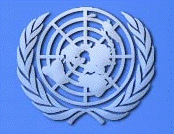Social Watch news
Published on Mon, 2015-03-09 16:06
As the discussion on the Declaration of the Post-2015 Development Agenda gets underway, differences between developing and developed countries that are likely to loom over the rest of the Post-2015 negotiations became clearer.
The draft political Declaration is to set the framework for the Post-2015 development agenda and spell out the broader common principles, commitments and objectives that the agenda is founded on.
|
Published on Thu, 2015-03-05 19:54
The most recent step in the post-2015 negotiations was the 17-20 February debate in New York on the Declaration, meant to be the framework political statement. Despite strong emphasis on transformation and high aspiration, traditional lines were drawn between (mostly) Northern and Southern positions.
At the same time, the debate was rich and nuanced, reflecting the increasing diversity of developing country concerns and their willingness to engage substantively on issues that will be critical to transformation. The process continues to suggest there is historic potential for redressing some of the longstanding imbalances driving deep social and economic disparities, and the impending collision with planetary boundaries. The notion that post-2015 is supposed to universally apply to every country and person in the world is unprecedented—never before has there been a development agenda this broad in scope.
|
Published on Thu, 2015-03-05 08:32
The UN Statistical Commission in New York meets at a moment when the global statistical community is at a “crossroads”. As we shift towards the post-2015 development agenda there is a need for measurement, monitoring and speed. There appears to be pressure to adapt by moving away from traditional data collecting to using “Big Data”.
Big Data refers to “high volume, velocity and variety of data, which require new tools and methods to capture, curate, manage, and process them in an efficient way”. Currently, Big Data tends to be owned primarily by the private sector (e.g. banks, online retailers, search engines, cellphone providers etc). This information ranges from your financial details to who you call, what you search for online or what you click on. Big Data has a lot of potential to discover subtle patterns. The private sector mine this data to make the customer’s experience better or tailor marketing to improve their business.
|
Published on Tue, 2015-03-03 18:59
Over the past twenty years we have heard constantly that the world has the resources to address global development challenges such as poverty, environmental degradation, diseases and inequalities. However, despite the resources “being there” human development plans have been consistently underfunded.
Clearly, existing “trickle-down” and redistribution mechanisms are not being effective and will be woefully inadequate to fund the implementation of the universal SDGs agenda.
|
Published on Tue, 2015-03-03 14:07
The phenomenon known as “Sinai Trafficking” started in 2009 in the Sinai desert and it involves the abduction, extortion, sale, torture, sexual violation and killing of men, women and children. Migrants, a majority of them Eritrean, are abducted and brought to the Sinai desert, where they are sold and resold, extorted for very high ransoms collected by mobile phone, while being brutally and “functionally” tortured to support the extortion. Many of them die in Sinai.
|
Published on Tue, 2015-03-03 14:06
Developing countries need sufficient policy space in particular in the areas of trade, finance and industrial development if they are to meet the goals of the post-2015 development agenda, says the UN Conference on Trade and Development (UNCTAD).
|
Published on Tue, 2015-03-03 13:55
The Economic and Social Council (ECOSOC) of the United Nations discussed on 23-25 February the Secretary General report on the implementation of the Quadrennial Comprehensive Policy Review requested by the General Assembly. Under a cryptic title, the meeting addressed core issues, such as the UN development system’s role (and its relevance) in the post 2015 agenda.
When it comes to the UN’s role in development, there is a broad consensus on the unique value the UN brings to the table because of its history, neutrality, convening power and universal representation. However, it is important to underline that the development ecosystem is being populated in recent years by emerging economic powers and new actors such as philanthropic organizations, large INGOs, regional institutions and development banks.
Moreover, the UN is no longer the biggest funder of development activities, as it is now finds itself in second position, behind the European Commission.
|
Published on Wed, 2015-02-25 10:41
 |
In a new article released by Future United Nations Development System (FUNDS), Roberto Bissio, Social Watch Coordinator, analysis the post-2015 process and suggests what must be done to ensure the promises made will be fulfilled. Twenty-two independent UN human rights rapporteurs wrote to the Rio+20 Summit that “real risk exists that commitments made in Rio will remain empty promises without effective monitoring and accountability.” This danger also exists for the Sustainable Development Goals (SDGs). The absence of specific targets for monitoring and accountability implies specific consensus about next steps is missing. In fact, many of the targets are essentially impossible to assess quantitatively because they refer to concepts for which there are no indicators or no internationally agreed definition. Governments are primarily responsible to their own citizens through oversight bodies such as parliaments, and so it will be up to civil society to demand and promote regular reporting on national progress.
|
Published on Tue, 2015-02-24 11:41
The United Nations General Assembly negotiations on the post-2015 development agenda have kicked off with Member States putting forward the broad contours of what they envision for the next 15 years of international development cooperation.
At the first of a series of meetings on 19-21 January at the UN headquarters in New York, the Group of 77 and China (G77) asserted that the post-2015 development agenda must be framed by guiding principles and international law, including that of Agenda 21, the Johannesburg Plan of Implementation and the Rio Principles on Environment and Development.
In particular, the Group stressed, there must be recognition that the international community's pursuit of sustainable development must be based on common but differentiated responsibilities, and that poverty eradication is the ultimate imperative for sustainable development.
|
Published on Tue, 2015-02-24 10:17
The change in the current development paradigm that the leaders of the world are going to approve next September will require bold reforms and policy shifts. Can they be accomplished without involving the Finance Ministers?
|
SUSCRIBE TO OUR NEWSLETTER
Submit

|










